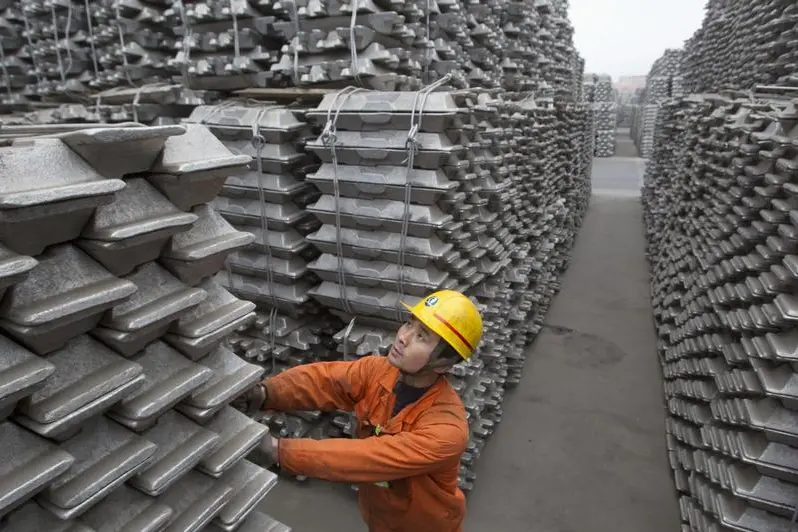PHOTO
China's aluminium imports jumped 38.9% in August from a year earlier, customs data showed on Monday, boosted by more buying on the back of low domestic stocks and better demand prospects.
China, the world's biggest consumer and producer of aluminium, imported 278,658 metric tons of unwrought aluminium and products including primary metal and unwrought, alloyed aluminium last month, data from the General Administration of Customs showed.
The market had expected improving aluminium demand in autumn, partly because of a seasonal pickup in manufacturing.
Prices were also supported by measures Beijing has taken to shore up a faltering economy and the crisis-hit property sector, which bolstered the demand prospects of industrial metals.
The light metal is widely used in construction, transport and packaging industries.
Import appetite was further underpinned by thin stocks at home.
Aluminium stocks on the Shanghai Futures Exchange sank below 100,000 tons last month, their lowest since December and less than a third of a March peak .
August imports rose 20% over July imports of 231,452 tons.
Imports for the first eight months were at 1.71 million tons, up 15.8% from the corresponding 2022 period.
More inflows this year also came as China increased purchases of Russian aluminium as Western buyers stayed away.
China's imports of primary aluminium from Russia surged 177% to 522,246 tons in the first seven months this year, up from 188,533 tons in the year earlier period, customs data showed.
Imports of bauxite, a key raw material for aluminium, totalled 11.63 million tons last month, the customs data showed, up 9% on the prior year.
The rises were attributed to rising aluminium production last month.
Domestic output of primary aluminium rose to 3.6 million tons in August, up 3.1% on the year, with smelters in the southwestern province of Yunnan continuing to ramp up production.
Bauxite imports in the first eight months of the year, at 96.62 million metric tons, were up 11.8% from a year earlier, the data showed. (Reporting by Siyi Liu, Ningwei Qin and Dominique Patton; Editing by Lincoln Feast.)





















